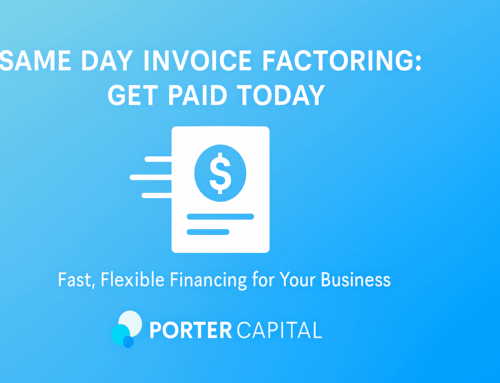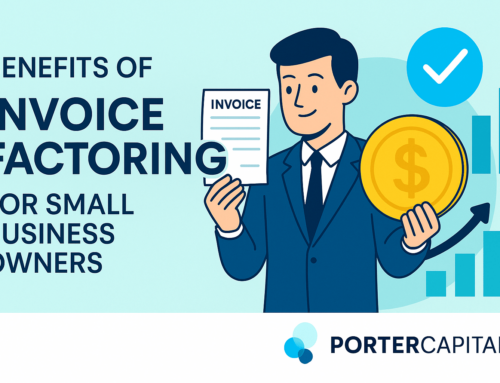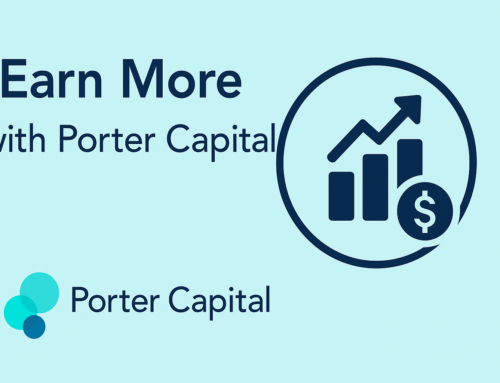Invoice factoring is a versatile financial tool for businesses of all sizes. It enables you to unlock the funds you need right now, without having to wait for your customers to pay you. By working with a factoring company, you can simply turn over some or all your unpaid invoices and gain immediate liquidity as the factoring company may assume the risks involved in receiving payment. Even though there are numerous advantages to this process, such as streamlining your accounts receivable operations and getting instant access to money you can use right away to fuel growth, it doesn’t come without costs.
Factoring companies charge for their services, which is typically expressed as a percentage of the value of each invoice along with any applicable fees. The key to getting the most out of factoring is to understand what it will cost you, balancing that against your current cash flow and optimizing your financing efforts. Read on to learn more about how to calculate factoring costs, what can influence them and how you can fine-tune your finances to ensure you’re getting the maximum value from the factoring process.
Understanding the Basics of Factoring
How factoring will work for your business depends on the type of agreement you sign with the factoring company and its terms. To start, you need to know the two basic types of factoring:
- Recourse Factoring: In this type of agreement, your company assumes the risk for any unpaid invoices. If, for example, one of the invoices you factor goes unpaid by your customer, you would be responsible for buying back that invoice from the factoring company. On the plus side, however, these agreements typically offer higher advance rates. This means you can benefit much more if you’re confident there won’t be an issue with collecting.
- Non-Recourse Factoring: With this arrangement, the factoring company agrees to assume all risks for invoices it cannot collect. This means you still have access to the cash paid to you even if the customer does not or cannot pay the original invoice. The caveat with these types of factoring agreements is that they are more difficult to secure due to the added risk and tend to offer lower advance rates as a precaution.
In terms of the additional fees, these will vary based on the provider you choose and various other factors. For example, some factoring companies will charge application or filing fees for each invoice. In some cases, you may be asked to pay a due diligence fee to offset the cost of the factoring company’s research into the viability of your invoices. Other common examples of fees associated with factoring include fees for underwriting, account maintenance, setup and/or processing.
Understanding how factoring works can be advantageous for your organization, because it provides fast access to much-needed cash flow without having to wait for payments to arrive. This is especially helpful in industries where long payment cycles are the norm. By factoring certain invoices, you can gain the stability and security you need to maintain your growth rate and meet all your objectives.
How to Calculate Invoice Factoring Cost
Most factoring companies base the cost of their services on a percentage of the invoice amount. However, there also are likely to be additional fees depending on the provider and any other services attached to the factoring process. This means the typical factoring cost can be determined using a simple formula:
(Invoice Amount x Factoring Rate) + Additional Fees = Factoring Cost
For example, let’s say you have an outstanding invoice worth $5,000. The factoring company you choose to work with specifies a factor rate of 5%, with an additional $100 fee for filing and documentation. This means you would pay $350 for that particular invoice, receiving $4,650 in cash for it once the entire process is complete.
In many cases, however, you won’t receive the entire sum all at once. This is because the factoring company needs to go through the process of receiving payment from your customer. Most of the time, there is an advance rate that determines how much of the invoice’s value you receive immediately and how much is deferred until after payment. In the hypothetical example mentioned earlier, we’ll say that the factoring company offers an advance rate of 85%. This would mean you receive $4,150 immediately, with the remaining $500 being paid out after the invoice has been paid.
Using an invoice factoring calculator can help you understand what to expect, so follow the link to learn more.
Factors Influencing the Cost of Invoice Factoring
Although the formula above is a reliable way to determine how much the factoring process will cost your company, it’s also important to know how those costs are influenced by factors behind the scenes. In addition to the terms set by the factoring company, you also should be aware of factors such as:
- Invoice Size: The most obvious factor that determines your costs is the size of each invoice. Obviously, the larger the amount, the higher the amount you pay to the factoring company as a percentage.
- Customer Creditworthiness: Your factoring company will perform due diligence before creating the agreement, which includes taking a look at the risk associated with each of your customers. Any invoices that are deemed a higher risk of non-payment may result in the costs being adjusted to reflect that.
- Industry Risk: Certain industries, such as transportation and construction, carry a higher risk of non-payment than others due to their volatile nature. Depending on which market you serve, your factoring costs may be higher or lower as a result.
- Factoring Volume: Factoring companies may offer discounted fees based on the number of invoices you choose to factor. This means you may be able to leverage more savings by factoring a larger number of invoices.
Why Factoring Cost Analysis Matters
Before entering into any agreement for accounts receivable factoring, it’s a good idea to sit down and consider how your costs may impact your cash flow situation. Being surprised by fees or not knowing what the advance rate is can have an impact on your profit margins and financial planning.
This is why it’s crucial to do your research before signing up with a factoring company. Make sure the provider gives you full and transparent details about the nature of the agreement, including a detailed breakdown of any fees that may be charged.
Once you have a clear idea of what each factoring provider charges, the next step is making your choice. You should plan to make sure the funds you receive after costs will be enough to actually help you meet your goals. It’s also a good idea to pay attention to the risk involved. If you’re factoring invoices from customers who have a solid history of paying on time, you should have little to worry about. If, however, you have any concerns about any specific customers, be aware that it might create challenges for you later.
Comparing Factoring Costs With Other Financing Options
Traditionally, companies experiencing cash flow difficulties would seek a business loan to help them make ends meet while they wait for revenue. Although this can lead to success, it also comes with a number of caveats. For instance, applying for a loan can be a lengthy and tedious process. There’s also a chance that a lender may decline to provide funding based on concerns about the borrower’s credit status.
Factoring offers an alternative to the business loan, and one that may prove to be the better option under certain conditions. Unlike traditional lending, factoring provides almost-instantaneous access to the majority of the funds, with only a small percentage held back until the invoices are paid. The process also comes with fewer credit restrictions, opening the possibilities for more businesses regardless of their current financial situation. Additionally, factoring offers more scalability for businesses that use it. They can choose to factor as many or as few invoices as they need to meet their current goals, rather than being locked into the loan amount and payment schedule set by the lender.
It also bears mentioning that factoring costs can have much less of an impact on a company’s finances than paying back a loan. Assuming the invoices are all paid in full, all the company has to pay is the agreed-upon percentage determined by the factoring rate and any associated fees. This is a one-time expenditure, and upon payment the obligation for that specific invoice is considered closed. On the other hand, taking out a business loan means making regular repayments over a fixed schedule. This essentially becomes another expense that adds to a business’ overhead. At the same time, businesses are expected to make payments with interest, meaning the money you borrow from the bank could end up costing you more than the amount you receive in the long run.
For all these reasons, it’s no wonder so many businesses choose invoice factoring over a business loan when they need to address seasonal cash flow issues or content with unexpected expenses. With fewer strings attached and more flexibility, factoring can solve a lot of issues for your company as long as you approach it with care.
Reducing Invoice Factoring Costs for Your Business
If you want to take full advantage of everything the invoice factoring process has to offer, there are several steps you can take to optimize your finances and reduce your factoring costs. First and foremost, you may be able to negotiate better terms with your factoring company by bundling invoices together or agreeing to longer contract terms.
However, there are other ideas you can use to influence the process in your favor even before you start working with a factoring company. For example, it’s a good idea to keep detailed credit profiles on all your customers to help streamline the due diligence for the factoring provider. This also makes it easier for you to see which customers are worth the time and effort to factor their invoices because you’ll have a clearer idea of the potential risks.
It also pays to take a close look at your invoicing processes and make sure it’s as efficient as possible. Any hitches or inconsistencies in your accounts receivable can lead to delays or complications in your factoring experience, so it’s best to optimize your procedures if you haven’t done so in a while. Of course, submitting your invoices to the factoring company as soon as possible is critical if you want to expedite the process as much as you can.
Choose Porter Capital for Your Factoring Solutions
Getting the most from the factoring process begins with choosing the right provider. Porter Capital is one of the top factoring companies in the business, helping countless businesses gain the financial breathing room they need to keep pace with the marketplace and fuel ongoing growth. We specialize in helping companies just like yours manage their cash flows as efficiently and effectively as possible.
Our clients choose to work with us because we provide them with the most transparent and flexible factoring solutions available anywhere. We’ll sit down with you to help you make the right choices for your business so you can secure the fast and accessible funding you need to make the most impact for your team and serve your customers.
If you’re ready to learn more about how Porter Capital can deliver the best factoring results for your organization, reach out and speak with a member of our team today. We’re ready to answer any questions you might have and show you how we can help you achieve all the benefits of invoice factoring.



